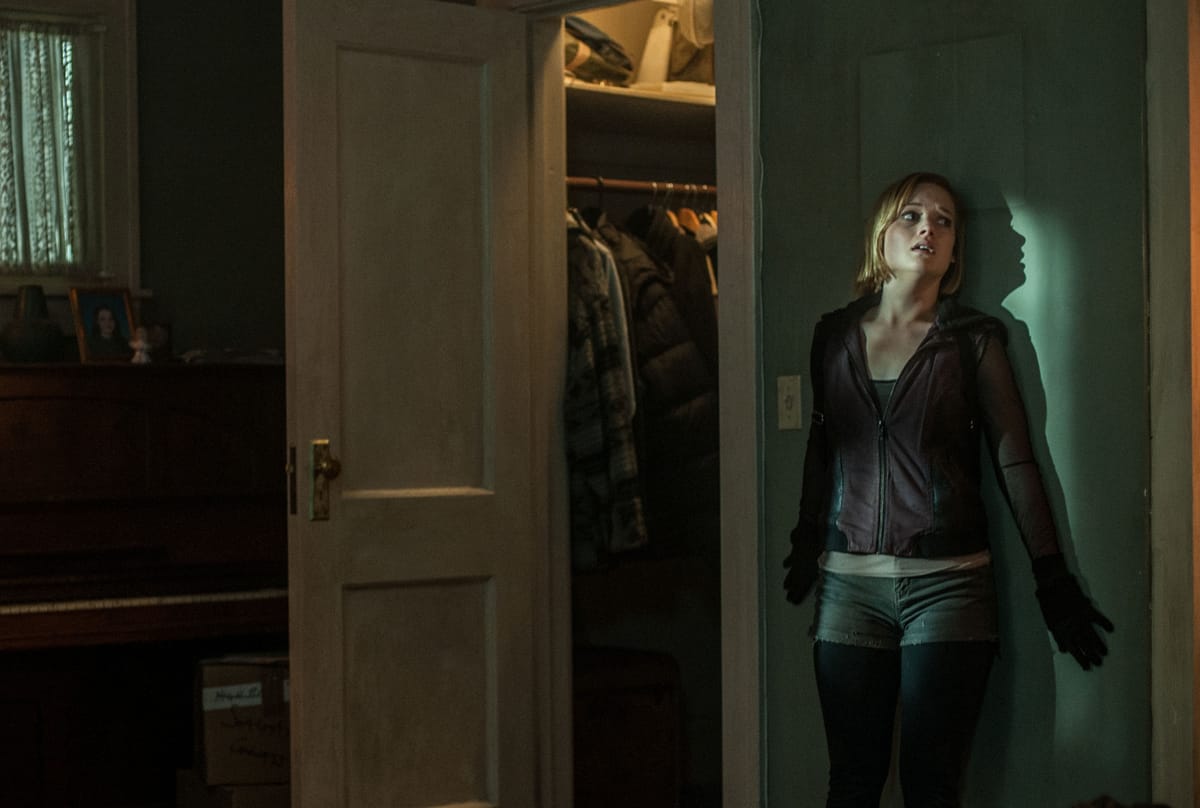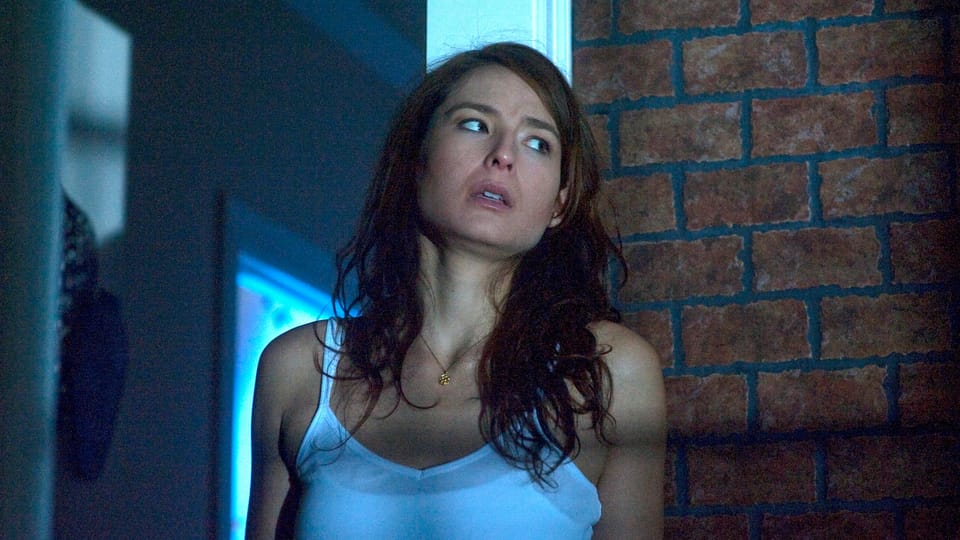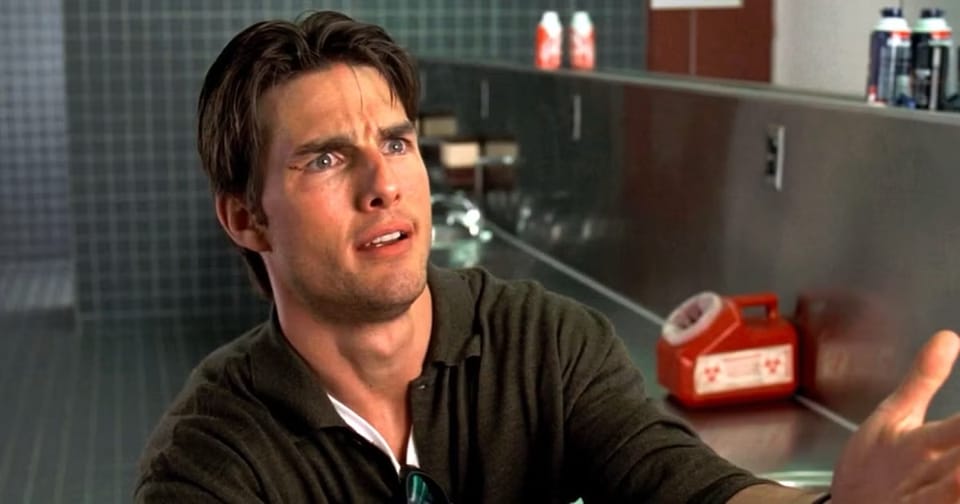Know what makes your screenplay unique.
The fastest route to selling a script and getting it made is to have a concept that gets people excited before they ever read the screenplay.

The Story and Plot Weekly Email is published every Tuesday morning. Don't miss another one.
Know what makes your screenplay unique.
It is Christmas week! I am going on light duty, so this will be short, but I want to give you something to think about over the break.
I hear a lot of loglines, and I obviously come up with plenty of story ideas myself. Not as many as I used to, but still... some.
And the consistent question I have for all of them is, "What makes this story unique?"
Followed by, "What makes this story fun?"
With fun, of course, being dependent on the genre and tone.
The form by which most people ask these questions is, "What's the logline?"
And the logline should make the answer to both of these questions clear.
This is what makes the logline important, not the format, the language, or anything else.
But the concept and the premise the logline contains.
People want to know how they will sell your project.
This is a point too many early-career screenwriters miss.
People do not champion a screenplay just because they love it. They champion a screenplay because they love it and think they can make money from it.
Which means selling it to others.
An agent has to sell the idea to producers.
A producer has to sell the idea to executives.
An executive has to sell the idea to their boss.
Marketing has to sell the idea to an audience.
All this selling has to happen before the person being sold reads the script or sees the movie.
This is why the fastest route to selling a script and getting it made is to have a concept that gets people excited before they ever read the screenplay.
People want to know they can make money from it.
It's your job to know what is unique and fun first.
If it's unclear to you what makes your project unique and fun, it is unlikely to be clear to anyone else. Why do you need to be unique and fun from the idea alone?
- Because that's what the market wants.
- That's how you stand out.
- That's how you get read.
Your best asset is a unique concept that promises great scenes just by hearing it.
- Cloned dinosaurs go nuts on an island.
- Make noise, and monsters will kill you.
- Three hungover guys must retrace the debaucherous night they can't remember to find their friend.
- A divorced couple teams up at their daughter's wedding to stop it.
The second best asset is a somewhat familiar premise with a new twist.
Take a look at baseball movies, which have their own little sub-genre.
THE BAD NEWS BEARS is an underdog little league baseball story.
MAJOR LEAGUE is that same premise in Major League Baseball.
BULL DURHAM is about the minor leagues.
THE NATURAL is more nostalgic about old-time baseball.
SUMMER CATCH is about the amateur summer leagues.
FOR THE LOVE OF THE GAME is about an over-the-hill player pitching a no-hitter.
THE ROOKIE is about a guy who stopped playing baseball in his teens and who, at 40, tries out for a pro club.
These are all different, unique approaches to something familiar. The familiarity lets us think, "Okay, I know what that is."
But the new twist then lets us think, "But I haven't seen THAT version."
This is not as good as a concept, but it's something.
You can also take a familiar approach and put it in a different world.
LITTLE GIANTS is BAD NEWS BEARS for Pop Warner football.
UNNECESSARY ROUGHNESS is MAJOR LEAGUE for college football.
THE REPLACEMENTS is UNNECESSARY ROUGHNESS for scab football players.
HOOSIERS is ROCKY for high school basketball.
MIRACLE is HOOSIERS for ice hockey.
THE SEDUCTION is a reverse-the-sexes PLAY MISTY FOR ME.
FATAL ATTRACTION is a reverse-the-sex classy THE SEDUCTION for a middle-aged family man.
THE FAN is FATAL ATTRACTION for baseball. See how I brought that home? (No pun originally intended.)
You cannot count on execution to get people excited.
A lot of us make this mistake. I have done it myself many times.
We think the execution is what will make the screenplay unique. The old "Just read it, and you will love it" approach.
But remember, the goal here is to get them excited BEFORE they read the screenplay.
"The fun banter" between two characters is not a selling point. It requires reading the script to appreciate it.
Just like "nostalgia," "tension," or "the laughs."
This all might be true! And the execution is vital!
But if it isn't promised in the concept itself, it doesn't help to sell to those who haven't read it.
You can't promise that it IS scary. The concept has to SOUND scary.
Two concepts compared.
So here is a not-horrible but way-too-general and premise-heavy concept: Three teenagers break into the house of a blind man, only to discover he is willing to defend himself.
Great. There's conflict and a clear narrative, but nothing jumps out at me about what any great scenes will look like.
If you say, "Trust me, the tension is immense," we think... "Maybe."
But let's throw in a couple more specifics.
What if the three teenagers are TRAPPED in the house in total DARKNESS, and the blind man is PSYCHOTIC, and with all light shut out, they're trapped in HIS world where he is the hunter?
NOW I'm imagining great scenes. NOW, I am imagining a specific conflict and what that might look like.
Now it SOUNDS tense, rather than you telling me in an email that it IS tense.
(The film, by the way, is DON'T BREATHE.)
What makes it fun and what makes it unique are not always the same thing.
They CAN be. But they aren't necessarily the same thing. What makes a screenplay seem fun before we read it is more about the concept than the premise.
A concept usually has a premise, but a premise doesn't always have a concept.
It sounds complicated, but not really. Think of it this way:
A concept generates great, fun scenes.
A premise generates plot.
So, back to THE FAN. The premise is that an unhinged baseball fan befriends a famous baseball player and ultimately kidnaps his son to ensure he plays the best game of his life. (I think; I am going by memory here.)
That's the plot and the premise. But the concept?
The concept is FATAL ATTRACTION for a baseball player.
Knowing that concept, we can imagine great scenes before reading the script.
The premise of BARBIE is that Barbie, living in Barbie Land, starts to fall apart and must visit the real world to stop it.
The concept is Barbie in the real world.
This concept is strong enough to make the premise less critical. Any premise that involves Barbie in the real world can exploit this concept.
That concept makes us laugh because the possibilities excite us. So we're excited to read the script or see the movie.
The same is true of SNAKES ON A PLANE. The premise is that a cop is escorting a critical witness and needs to get him where they're going alive. The concept is the title: snakes on a plane.
Any plot mechanics with people trapped on a plane with hundreds of dangerous snakes can exploit that concept.
For a deeper look into concept, you can view The Weekly Email that covered it earlier this year. I'll link it at the end of this one.
Some of our favorite films have little or no concept.
Take BULL DURHAM. The premise is that an old minor league player is tasked with mentoring a talented but undisciplined up-and-coming pitcher and the love triangle that develops. It is a love letter to baseball, its players, and its most loyal fans.
It is one of the best baseball films ever made and an undisputed classic.
But the closest thing it has to a premise is, "A close-up look at the culture of minor league baseball."
It's not the worst concept, but certainly not a HIGH concept.
And this often confuses us. If our favorite films have no concept, why should the films we write?
It's a fair question. Here are a few answers.
- The business has changed, leaning more toward preexisting IP and higher-than-high concepts, making low-concept projects even more difficult.
- Successful filmmakers have built trust in the execution department that early-career filmmakers have not. This goes both ways. When those filmmakers lose that trust, they lose the ability to make these kinds of films.
- For early filmmakers, the primary challenge is getting their material read, which requires generating excitement BEFORE someone reads the script.
- Most importantly, you CAN write these projects! And if you're passionate about them, you absolutely should. Just know how it affects your chances. It lowers them, but the chances are never zero when the screenplay is done well. Ever.
Be honest with yourself.
Does your idea generate great scenes in people's minds when they hear it? Do people get excited about the possibilities before they even read it?
You cannot pitch the whole movie with a concept or the logline that contains the concept. But you CAN pitch the possibilities and, therefore, its potential.
State the concept in a simple, clear sentence. Write it down.
If it requires more than a simple, clear sentence, it's too complicated. If it requires a page, it's not a concept at all.
Say you love this idea, but you already know it's not high-concept and never will be.
Okay!
Your job is to know what makes this idea different from anything we've seen before. What's fresh about it?
It doesn't have to be 100% like no one has ever experienced! That's a lot to ask, and no one asks for it.
Just a tweak is enough—just a new take.
"Like this, but different" is a tried-and-true formula.
However, it requires the "but different" part to be absolutely clear.
REAR WINDOW with a high school kid made a ton of money!
Know what these things are. And make sure they are evident in the logline.
PS - Two related previous Weekly Emails.
Click here to read The Concept is King and Know your goal before you start writing your screenplay.
The Story and Plot Weekly Email is published every Tuesday morning. Don't miss another one.
When you're ready, these are ways I can help you:
WORK WITH ME 1:1
1-on-1 Coaching | Screenplay Consultation
TAKE A COURSE
Mastering Structure | Idea To Outline




